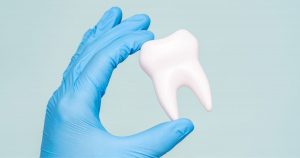November 27, 2024 from Malone News

Oral health is vital to overall well-being, with dental diseases ranking among the top medical expenses in the United States. Despite decades of fluoride use, cavities and periodontal diseases continue to affect millions, raising questions about current prevention strategies. Emerging research highlights the importance of dietary changes and adequate Vitamin D levels in improving oral health outcomes.
The Persistent Problem of Dental Disease
Dental infections are a universal human affliction, costing billions annually and contributing to systemic health issues like heart disease. Fossil evidence shows that dental diseases have plagued humans for millions of years, with factors like carbohydrate-rich diets and sugar intake playing significant roles.
Despite efforts to prevent cavities through fluoride supplementation in municipal water supplies, dental disease remains a major public health issue. According to the U.S. Department of Health and Human Services (HHS), excessive fluoride exposure is now linked to potential neurodevelopmental issues, such as lower IQ in children exposed to water with fluoride levels above 1.5 mg/L. This raises concerns about the narrow “therapeutic window” of fluoride dosing.
Rethinking Fluoride
Although fluoride was once heralded as a breakthrough in dental health, new findings challenge its universal use. Critics argue that:
- Uncontrolled Dosing: Fluoride intake varies based on water consumption and exposure from other sources like toothpaste.
- Lack of Informed Consent: Fluoridation of public water does not allow individuals to opt out of treatment.
- Emerging Risks: Recent studies link high fluoride exposure to cognitive damage in children.
Countries like Denmark, Sweden, and the Netherlands have already banned water fluoridation due to safety concerns. As the debate continues, the focus is shifting toward alternative strategies for preventing dental disease.
Diet and Oral Health
Diet plays a pivotal role in oral health. Simple carbohydrates and sugars fuel harmful bacteria like Streptococcus mutansand fungi like Candida albicans. These microorganisms form biofilms, protective layers that shield them from the immune system and enable tooth decay and gum disease. Reducing sugar intake and opting for a balanced diet can significantly decrease the risk of dental disease.
The Role of Vitamin D
Vitamin D deficiency is widespread, affecting approximately 22% of Americans, with severe deficiencies present in 2.6% of the population. Adequate Vitamin D levels are crucial for overall immune health, including the oral immune system. This system relies on:
- Saliva: Containing antimicrobial agents like lysozyme and lactoferrin.
- Innate and Adaptive Immunity: Cells and cytokines that protect against infections.
Emerging data show that sufficient Vitamin D levels can enhance oral immune function, reducing the risk of cavities and periodontal disease.
A Holistic Approach to Dental Health
The fight against dental disease requires more than fluoride. Incorporating these strategies can help:
- Monitor Fluoride Intake: Use fluoridated toothpaste while being mindful of additional sources.
- Adopt a Balanced Diet: Minimize refined sugars and carbohydrates to limit biofilm formation.
- Ensure Adequate Vitamin D: Sunlight, supplements, and fortified foods can help maintain healthy levels.
Oral health is deeply interconnected with diet, immune function, and preventive care. As new research challenges traditional approaches like fluoride supplementation, it is essential to embrace holistic strategies that prioritize safety, efficacy, and informed choice. By focusing on diet, Vitamin D, and immune support, we can pave the way for a healthier future—one smile at a time.
=================================================================
Considering an IME or document review to resolve an insurance claim, legal file, or workplace health and safety issue?
Our specialists provide evidence-based opinions, so get in touch with Western Medical today to learn more about our services.

